Part One: The Victim
Not all bullets in the Civil War were exchanged between North and South.
One of the most spectacular crimes of the Civil War, besides the Lincoln assassination, was the murder of Major General Bull Nelson from Kentucky. A fellow Union officer shot him. Donald A. Clark recently published the first biography of Bull Nelson and has offered to answer questions about the case. Today’s blog will focus on Nelson’s background; next week we’ll take a closer look at the crime. Feel free to ask Don your own questions via the comment section below.
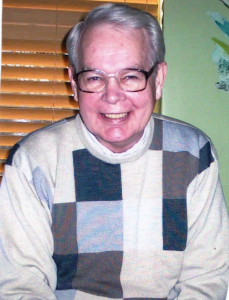
Donald A. Clark has published a number of scholarly articles about 19th century Kentucky history, covering topics as diverse as the Civil War, church history, and viniculture. The Southern Illinois University Press published “The Notorious ‘Bull’ Nelson: Murdered Civil War General” in 2011.
AMA: Hello Don! Who was Bull Nelson and what happened?
DAC: Days after the opening salvos at Charleston, South Carolina, United States Navy lieutenant William “Bull” Nelson stepped forward to help his native state of Kentucky remain loyal to the Federal government. On September 29, 1862, Major General Nelson was murdered by a subordinate Union general named Jefferson Columbus Davis after the two had a public confrontation in the lobby of a Louisville, Kentucky hotel. As fate would have it, the President of the states in rebellion was also named Jeff Davis. The Union Jeff Davis was never prosecuted for the crime and that ensured he and Nelson and would be better remembered for a very peculiar tragedy rather than the meaningful contributions that both made to keep their county whole.
How did Nelson’s murder affect the war?
Nelson’s death had no affect on “the war.” However, at the succeeding battle of Perryville (Kentucky), his bold fighting style could have conceivably brought about a genuine defeat of the Confederate forces. Instead they were able to withdraw and prolong the fighting in Tennessee.
Nelson was the kind of person whom people either loved or hated. Why? And what was the real Bull Nelson like?
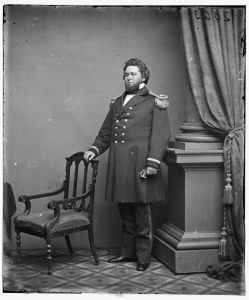
The six foot four inch Nelson was an “ox of a man” who weighed over 300 pounds. His deep booming voice dominated conversations in which he always made his opinions known. As a high spirited and unruly teenager, he served five years in the harsh world of the old sailing navy and that seems to have made him into a “bully” when he attended the U. S. Naval School. The Nelson who commanded infantry troops in the volunteer army endeared himself to the enlisted ranks because he never held his tongue when chastising inept volunteer officers for failing to properly care for those men. He became a martyr to that style of discipline by openly embarrassing Brigadier General Jeff Davis for not doing his duty. The public loathed any form of bullying behavior by officers and the press fed that feeling with vengeance.
Thanks, Don! See you next week for more about the murder.
Have you ever known a bullying personality like Nelson’s? How did people deal with him or her?
Literature on point:
Donald A. Clark, The Notorious “Bull” Nelson: Murdered Civil War General (Carbondale: Southern Illinois University Press 2011).

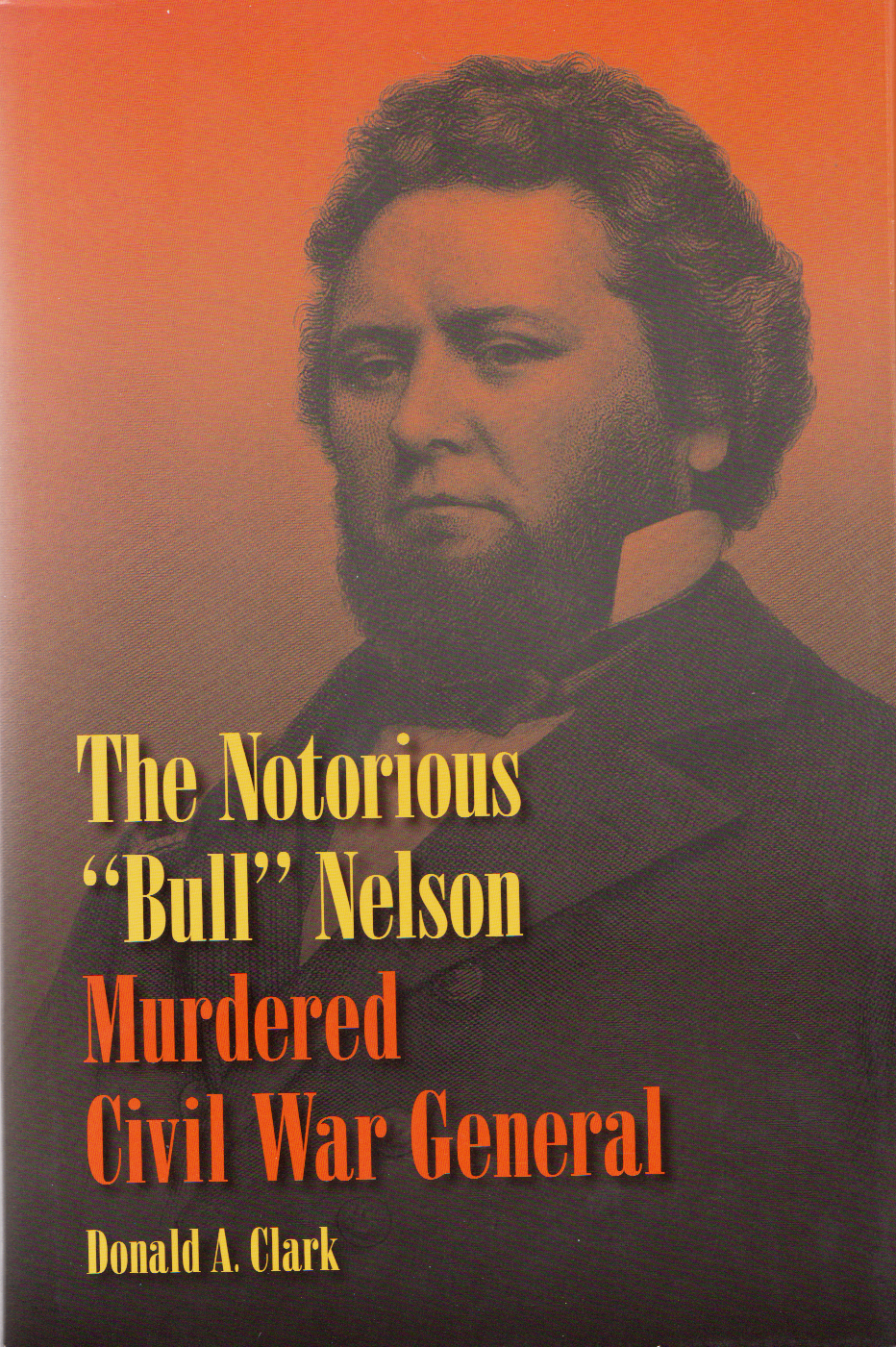
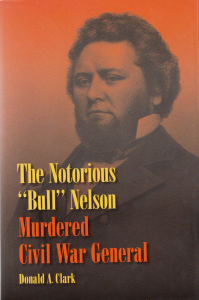

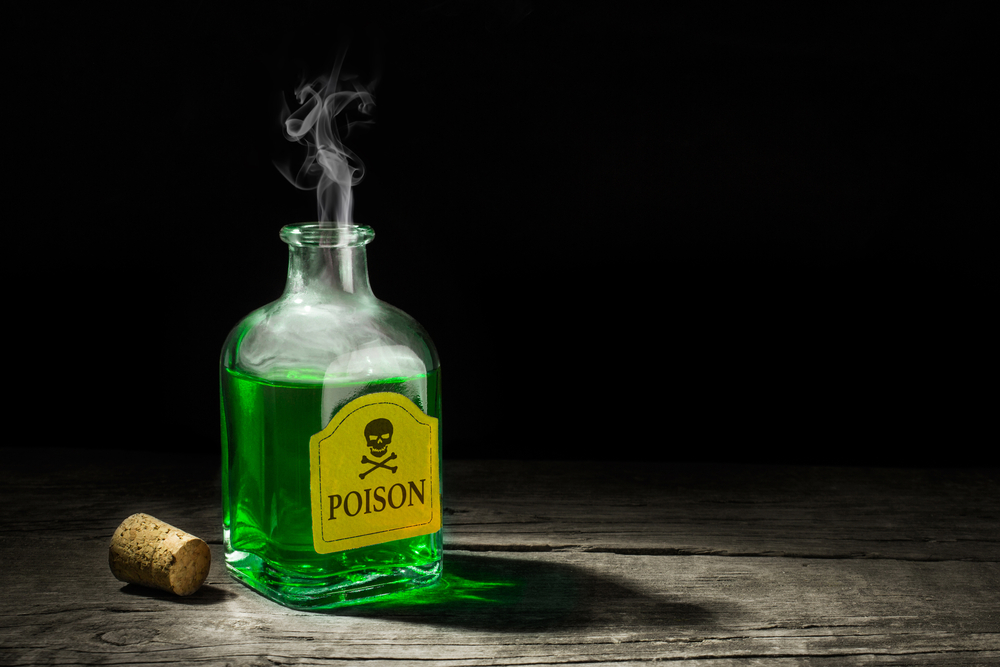

Who decided not to prosecute? Did Davis survive the war? did he pay blood money to the Bull’s wife?
Hi Brian,
The simple, direct answer to that difficult question is Maj. Gen. Horatio Wright, commander of the Department of the Ohio at Cincinnati released Davis from close arrest on October 13, 1862. Over the course of the next Wright inexplicably concluded that the killing had been done in self-defense and he dismissed the matter because no one had preferred specifications and charges against Davis. On Tuesday, October 21, 1862, it was reported: “Gen. Jeff. C. Davis, who killed Gen. Nelson, has been released from arrest, and ordered to report for duty at Cincinnati.”
On Monday, October 27, 1862, the Jefferson County Grand Jury in Louisville issued an indictment for manslaughter. Davis was released on $5,000 bond, and on Wednesday, October 29, Special Orders No. 90 called for him to join the newly formed Army of the Cumberland as a division commander. The manslaughter indictment went on and off the docket until May 1864 when it was stricken with leave to reinstate.
The unrepentant Davis died on of pneumonia in 1879 having never attained the permanent rank of major general of volunteers, a position he dearly coveted.
The long discarded practice of “blood money” could not atone for the crime. The unmarried Nelson was survived by two brothers and a sister who saw that he was eventually buried in the family plot in Maysville, Kentucky.
Thanks for the questions. I trust this helps.
Don Clark
It should be noted that Davis reported from his sick bed. Also Davis was not only sickly but very slight in stature and only weighed about 135 pounds. The pistol he used was borrowed and know to have a hair trigger. Nelson and Davis had history from the time Davis was stationed at Fort Sumpter and Nelson was a junior Naval officer they even played chess together.
Butler was well known as a blustering bully who had yet to be battle tested and Davis a regular Army officer whose valor had been documented as far back as the Mexican war. In the context of the times and Victorian sense of honor it was a volatile situation with a not unexpected result.
Thanks for the comments–
Davis was well enough to go across the Ohio River to Louisville and return home before he then traveled to Cincinnati and reported to Horatio Wright who directed him to go back to Louisville and report to Nelson. The striking difference in size was an unstated issue that arose after Davis was slapped on the side of face for flipping a wadded up calling card in Nelson’s face. The latter was unseen and James B. Fry inexplicably waited until 1885 to reveal this his book: Killed by a Brother Officer.
I do not know of any documented proof that Davis and Nelson ever interacted in a meaningful way. The two may have met briefly when captured slaves were transferred at Charleston, South Caroline to the Niagara for return to Monrovia, Africa in 1858.
The “high-spirited” Nelson acquired his bullying manner in military prep school and service in the mean world of the Old Navy. There were many others in his time who were far worse.
Nelson participated in the Siege of Vera Cruz in 1847 and likewise the Second Battle of Tabasco.
The killing of Nelson was quite a surprise and initially it was expected he would be tried for the crime. The honor explanation came in after the fact.
I hope this helps.
Sincerely,
Don Clark
Thanks for the answer, sorry I’m late to return.
Can I simplify the reason not to prosecute to be “because of the civil war?”
Was it normal during the war for men accused (or convicted) of crimes to be “sentenced” to serving in the army? (considering it would be punishment enough for whatever they had done and possibly a death sentence)
Hi Brian,
Don Carlos Buell could not spare officers for a trial because of the urgent need to drive the Confederate invaders from Kentucky. He requested that the matter be handled by authorities in Washington and they passed the matter on the commander of the Department of the Ohio in Cincinnati apparently without noting Buell’s desire for a trial. Conviction called for punishment by hanging and many believe Davis was quite lucky to have avoided that fate.
Regards,
Don
Would you say that placing a Navy man into an Army officer post was like sticking a square peg into a round hole?
Old Navy officers had a basic understanding of infantry tactics and they were particularly proficient in the use of artillery. Nelson was rightly criticized for having no understanding of administrative practices and there was serious concern about his temperament. West Point officers who served under him greatly admired his skill in leading infantry troops. His Fourth Division was considered among the best.
Hi Bill,
The only relations I know of come through the children of Nelson’s sister at Maysville, Kentucky and his brother Thomas at Terre Haute, Indiana.
Don
[…] The Notorious “Bull” Nelson: Murdered Civil War General by Donald A. Clark. A scholarly portrait of one of the war’s most famous murder victims. You can read my interview of the author here. […]
Hi Don,
I’m related to Bull Nelson.
How can I contact you?
Thanks.
I’ve Emailed Don to let him know you want to talk to him, Bill. Thanks for commenting.
Greetings Mr. Clark,
I have some questions. In your book:
Page 33: Lt. Jefferson C. Davis is in charge of freed slaves at Ft. Sumter
Page 33: Bull and Lt. Davis meet briefly aboard the USS Niagara in regard to transferring the freed slaves (1858)
Page 141: Bull assigns BGen Jefferson C. Davis to organize the Louisville Home Guard (1862)
1) Is this the same JC Davis that Bull met aboard the Niagara?
2) If so, Davis went from Lt. to BGen in 4-years?
3) If so, did Bull recall that he had met Davis on the ship 4-years earlier?
Thanks much.
Those are interesting questions, Bill. I’ll Email Donald Clark and ask him to take a look at them. Please check back later for his comment.
Bill, I hope this helps-
For his valorous service in the Mexican War, Jefferson Columbus Davis received a commission in the regular army. He was serving with that army when the slaves were transferred to the Niagara; an exchange that called for a brief interaction with Nelson.
In April 1861, the national government formed the The Volunteer Army of the United States. Davis became a colonel and was promoted to a brigadier general about the same time Nelson was commissioned to that same rank. In July 1862 Nelson was promoted to major general in the volunteer army.
I doubt that Buell knew about or cared about any previous contact between the two men.
Best regards,
Don
Good evening Mr. Clark,
In your book you about Bull Nelson you discussed President Lincoln having friends he relied upon from Kentucky. 1) General Buell and 2) Green Adams from Knox County, Kentucky. Currently engaged in research into the Adams/White family of Kentucky and was curious about a source documenting this relationship. I have found one letter between Lincoln and Green in the National Archives and am inquiring about any additional sources you might be willing to share.
Thank you kindly,
Thanks for commenting, Kelly. I’ll ask Mr. Clark to respond. And good luck with your research.
Hi Kelly,
Sorry to say, I don’t have anything more on Green Adams than what appeared in the book.
Regards,
Don Clark
I really don’t have anything to add since all of my questions were asked. It is another thought-provoking interview that piques my interest in the subject. I have always enjoyed biographies and autobiographies from the time I could read. Thank you very much for having this interview with the author of this book about General William “Bull” Nelson.
Thanks, Susan! I enjoyed talking to Donald Clark, too.
Is is possible to send you an email or regular letter?
Do you mean to me or to the author, Donald Clark?
If the former, please use the contact link via my website to send me a private message. If for any reason that doesn’t work, my email address is also under the impressum link on my menu.
Bull is my Great-Great-Grand Uncle, son of my 3rd Great Grandfather, Dr. Thomas Washington Nelson (1796-1849). Bull’s brother, Anderson Doniphan Nelson, was a graduate of West Point Military Academy. Bull was the 12th graduate of the first class at the Naval Academy in Annapolis. Both brothers had long and amazing careers in the military.
What a fascinating family history! Thanks for sharing that. Is Anderson Doniphan Nelson your direct ancestor?